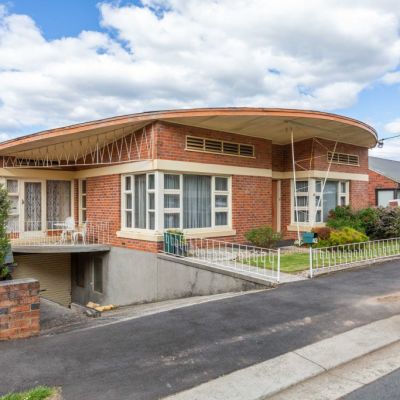Where property investors are losing thousands every month
A property investor who bought a typical house or unit now and rented it out would be hundreds or even thousands of dollars out of pocket every month.
But despite the prospect of cash-flow losses, investors have been rushing to borrow more money and buy property, in the hope of future capital gains.

Property investors can also claim their deductible expenses against their salary to reduce their tax bill.
Greens leader Adam Bandt this week outlined plans to limit negative gearing tax concessions to one investment property, but Labor’s industry and science minister Ed Husic on Wednesday afternoon emphasised that the prime minister had ruled out the idea.
An investor who bought the typical unit in Sydney on a 20 per cent deposit would face monthly mortgage repayments of $4232, but the typical rent for the property would be only $3133 a month, CoreLogic figures show.
Someone who bought the typical Melbourne unit would pay $3023 a month on their investment loan, but would charge $2490 for the typical rent.
A Brisbane investor would pay $3450 and recoup $2639, while an investor in Perth would pay $2976 a month and make back $2829 in rent. The only exception in the capital cities was Darwin units.
The gap was wider for houses – a Sydney investor who bought the typical house would be $3782 out of pocket a month, and a Melbourne investor would lose $1869. Investors would also be behind in Brisbane ($1881) and Perth ($1047).
CoreLogic head of research Tim Lawless said the cash-flow losses are more pronounced now than when interest rates were at ultra-low levels.
“Most investors in Australia almost entirely focus on prospects for capital gains. The cash flow or yield equation of the scenario seems to be quite low on their priorities,” he said.
“Rents can’t go much higher. Renters are at an affordability ceiling — we’re already seeing renters on average are paying about a third of their gross annual income on rent and historically that’s a record high.”
He pointed to ATO figures showing 41.9 per cent of property investors made a loss in FY2022, compared to a long-term average of 60.8 per cent, and expected the proportion to rise once more recent tax figures are published that take into account the steep rise in interest rates over 2022 and 2023.
Investors have scarcely been deterred by the prospect of cash-flow losses.
Lending to investors as a share of all home lending is higher than the 10-year average in most states, CoreLogic analysis of ABS data shows. In NSW, 43.7 per cent of new home lending went to investors in the December quarter, above a decade average of 40 per cent.
In markets where values have boomed over the past couple of years, investor lending is much higher than usual, such as in WA (35.7 per cent vs an average of 24.7 per cent) and Queensland (37.9 per cent vs an average of 31.7 per cent).
Even in Victoria, where the state government lifted land tax on second homes early last year, investor lending of 30.3 per cent is barely below the decade average of 31.5 per cent. Tasmania is only marginally below its decade average.
Lawless said that growth in investor lending and housing values tends to run in parallel as investors chase capital gains rather than rental yield.
Investors who did want better cash flow would need to have a large deposit or own a property for long enough to pay down the principal, or do a renovation, he said.
Short-stay letting was another method some investors chose to increase cash flow, but Lawless said this was a controversial choice.
Westpac senior economist Matthew Hassan agreed that property investors are not only interested in rental returns, but also in prospective capital gains. Some might be buying a property to rent out for now, but to move into in retirement, he said.
“For a long time, the relative cost of renting in Australia was really good, and even now … it’s still cheaper than the mortgage on the same property,” he said.
“I think at its heart it reflects a premium on property ownership, the tax benefits to the investor available through residential property investment.”

Buyer’s agent Rich Harvey noted that property investors may be able to claim their deductions upfront to reduce the tax they pay throughout the year, rather than waiting to file a tax return.
“Investors have got to be really smart about picking properties they negatively gear in the best and highest capital growth areas,” the chief executive of propertybuyer.com.au said.
“When you get into that 20-year-plus period of holding a property the capital growth is exponential, it’s fantastic.
“A lot of the negatively geared properties become positive cash flow over time.”
We recommend
States
Capital Cities
Capital Cities - Rentals
Popular Areas
Allhomes
More










